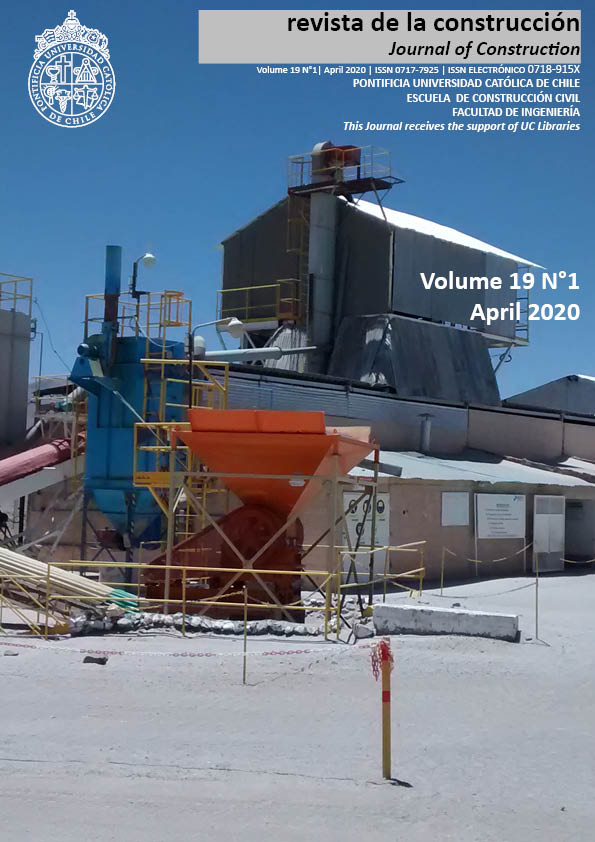An investigation of resistance of sodium meta silicate activated slag mortar to acidic and basic mediums
DOI:
https://doi.org/10.7764/RDLC.19.1.127-133Keywords:
Blast furnace slag, geopolymer, alkali activation, mortar, durabilityAbstract
This study presents the resistance of sodium meta-silicate activated ground granulated blast furnace slag (GGBFS) to acidic and basic mediums. Geopolymer mortars were prepared with GGBFS activated by sodium meta-silicate activator having 4, 8, and 12% sodium concentrations by mass of slag. These mortars were exposed to two types of acid solutions, H2SO4 and HCl with a 5% concentration of acid-water solution. Similarly, some specimens were exposed to a basic medium composed of 25% NaOH solution with water. Exposure time for the acidic and basic mediums was set to one year. Comparison of results obtained from slag based geopolymer mortar was made with normal Portland cement control mortar. Normal control samples lost compressive strength significantly after exposure to acidic and basic medium in comparison to alkali activated slag mortar. Particularly, after exposure to H2SO4, the compressive strength of the normal control samples decreased by about 40%. Contrary to this, the slag based geopolymer mortar gained compressive strength after exposure to the acidic or basic mediums. An up to 21% strength increase was observed from the alkali activated slag mixtures made with 4% and 8% Na content.
Downloads
Downloads
Published
How to Cite
Issue
Section
License

This work is licensed under a Creative Commons Attribution-NonCommercial-NoDerivatives 4.0 International License.








